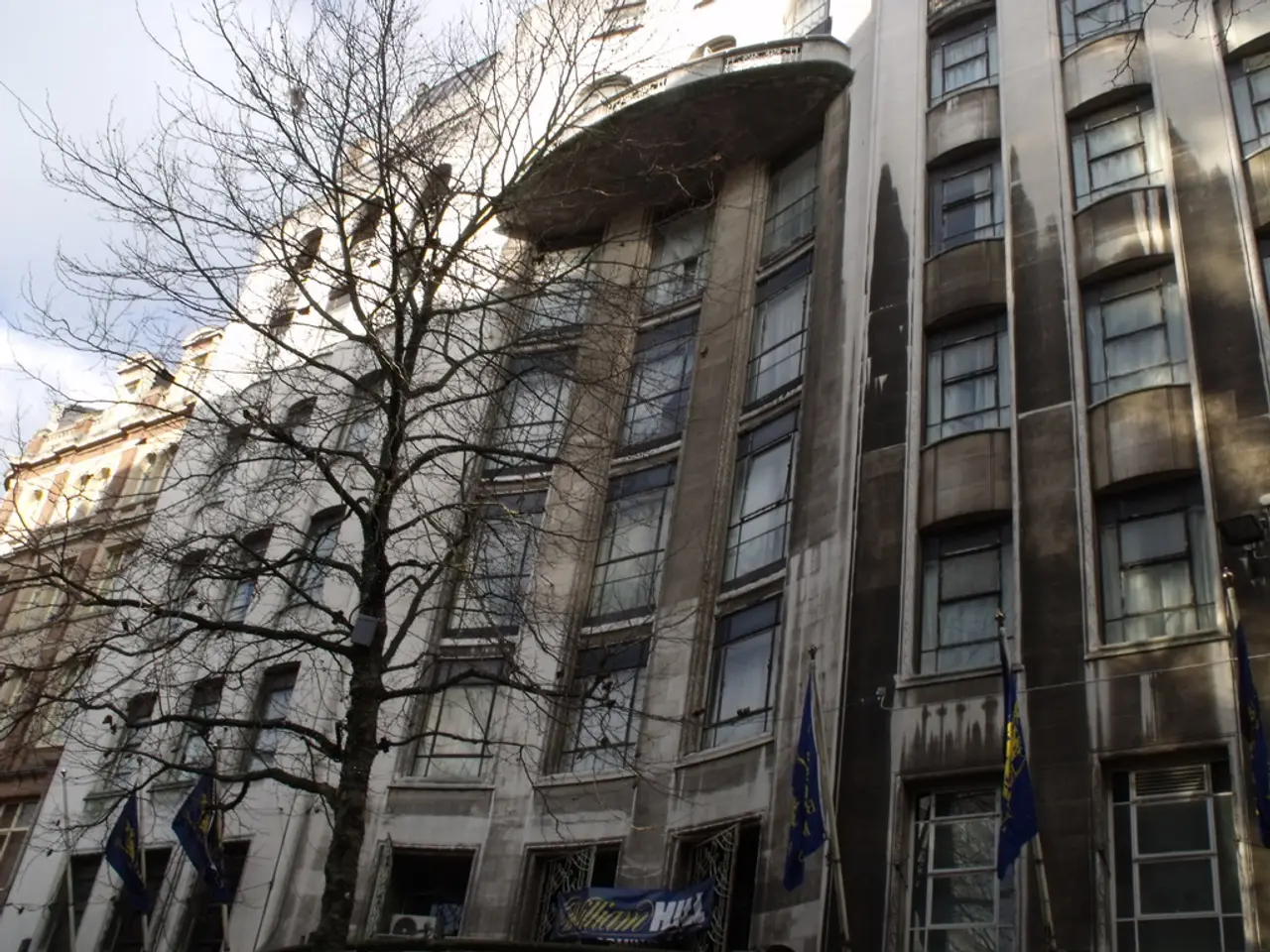Industrial sites in Vancouver under consideration for potential residential rezoning
In the heart of Vancouver, a significant discussion is underway regarding the future of industrial lands and residential development. The city is considering rezoning 85% of its industrial sites to residential use, a move that could have profound implications for employment, the economy, and housing.
Industrial lands in Vancouver serve as the backbone for manufacturing, logistics, and various industrial jobs. Converting a large portion of these sites to residential could potentially lead to job losses or displacement of businesses, particularly affecting blue-collar and manufacturing workers reliant on local industrial employment [2].
However, the rezoning could also accelerate the construction of much-needed housing, easing affordability challenges and supporting local economic growth through increased population density and spending [1][3]. Vancouver is actively streamlining residential rezoning and construction, including multiplexes and increased allowable heights and densities in residential districts [1][3][4]. This could potentially enable faster delivery of housing units and stimulate construction employment.
The economic well-being impact is a delicate balance, hinging on the replacement of lost industrial jobs and managing the benefits of increased residential population. Risks include a mismatch if displaced industrial jobs aren’t replaced locally or if housing growth leads to increased costs or congestion. The City is exploring standardized zoning to accelerate residential development, but the complexity and uncertainty remain in negotiating rezoning and related community amenities [1].
The Board of Metro Vancouver has emphasised the importance of maintaining lands for jobs to support complete communities. Neil Wyles, from the organization, stated that the days of traditional factories like buggy whip and candle factories are gone, and there is a need for re-examination [5]. The Mount Pleasant Business Improvement Area agrees with the need for re-examination.
Vancouver Mayor Ken Sim envisions more concentration of housing in the region while maintaining industry. He believes that factories are not necessarily needed in the area, suggesting a shift towards modern industries like data centres, AI, and robotics [6]. The five industrial sites under review for rezoning are located in Vancouver, specifically in areas such as the former Molson site, near Main Street and Terminal Avenue, Railtown, Marine Gateway, and Mount Pleasant.
Industrial lands in the Metro Vancouver region account for only 4% of the region's land base but accommodate more than 25% of the region's total employment [7]. These industrial sites are part of Metro Vancouver's industrial land reserve. The neighborhood's needs and requirements have changed, according to Neil Wyles, and it's possible to have a balance between housing and industrial land [5].
Staff have until the end of October to report back to the council with their findings. The trade-off between employment space and housing development is a key issue currently under discussion in Vancouver [2]. The industrial sites under review are significant contributors to the region's economic well-being, with important links to transportation, trade, and tax dollars [7].
In summary, the rezoning of industrial sites in Vancouver presents a delicate balance between potential job losses and the benefits of increased residential supply. The city is actively working to streamline the process while ensuring a balance between housing and industrial land, with a shift towards modern industries. The findings of the staff report are eagerly awaited.
- The rezoning of industrial sites in Vancouver, if implemented, could lead to a shift from traditional industries towards modern sectors like data centers, AI, and robotics, potentially impacting the employment landscape and Finance investments in real-estate.
- The decision to convert 85% of Vancouver's industrial lands into residential use could have far-reaching implications in Politics, as it involves balancing the needs of various stakeholders, including blue-collar workers, business owners, and residents, while addressing concerns related to economic growth and housing affordability.




